STARTO Fandom Glossary
for Beginners
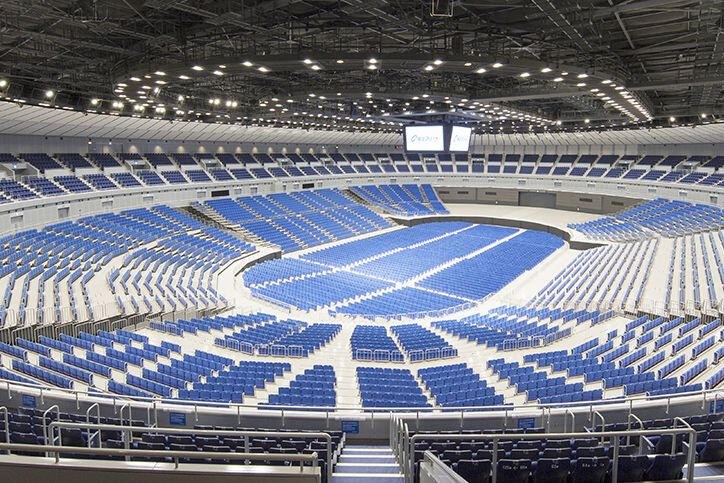
Arena
Arenas are the smaller cousins of domes and serve as the concert venues for many idol groups. Each arena can hold around 15,000 audience members.See "Dome".
Call-and-ResponseOften abbreviated as C&R, the Call-and-Response is a form of music where one person performs a music statement, while another person (or group) responds with their own musical statement. This is seen in concerts where idols will sing a verse and have the audience respond by singing or calling back at them.You can see this in action during Arashi's 2012 concert at the National Stadium.
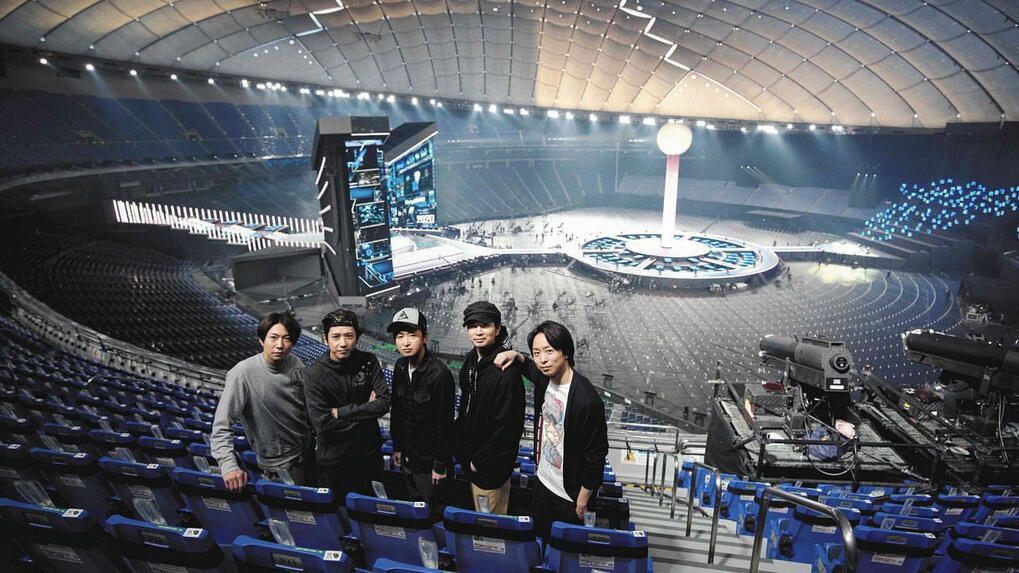
Dome
The domes refer to the massive indoor stadiums found around Japan, notably in Tokyo, Osaka, Sapporo, Nagoya and Fukuoka. When a STARTO group gets to hold its concert at a Dome, it’s a sign of their popularity as each Dome can hold around 50,000 audience members.

Furage (フラゲ)
Furage is an abbreviation of the phrase “flying get”, which refers to the occasion where fans receive CDs or DVDs before their official release date. “Flying get” is a wasei-eigo phrase and is based on another wasei-ego phrase, “flying start”, which refers participants jumping the gun before the official start of a race.
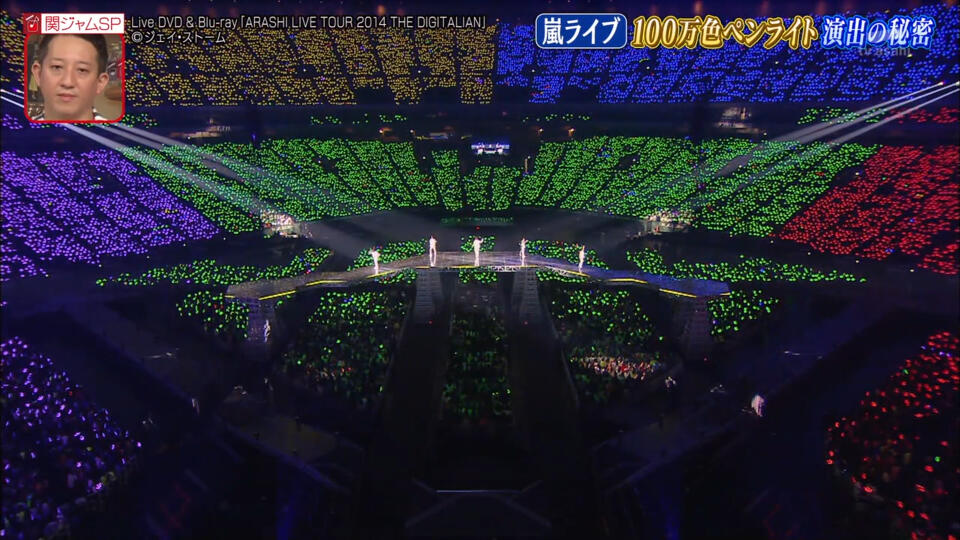
Furifura (FreFlow)
Freflow is an LED light system from Sony Music Solutions that is embedded in handheld penlights during concerts. The color and luminescence of each penlight is controlled remotely using this technology and can be used to create stunning lighting effects synced to the music to enhance performances at concerts.See "penlights".

Gin tape
Gin tape are streamer confetti which are usually released from confetti canons or the ceiling during concerts. As the gin tape are usually designed with the concert’s logo or theme, fans often pick up them during concerts or even resell them online.
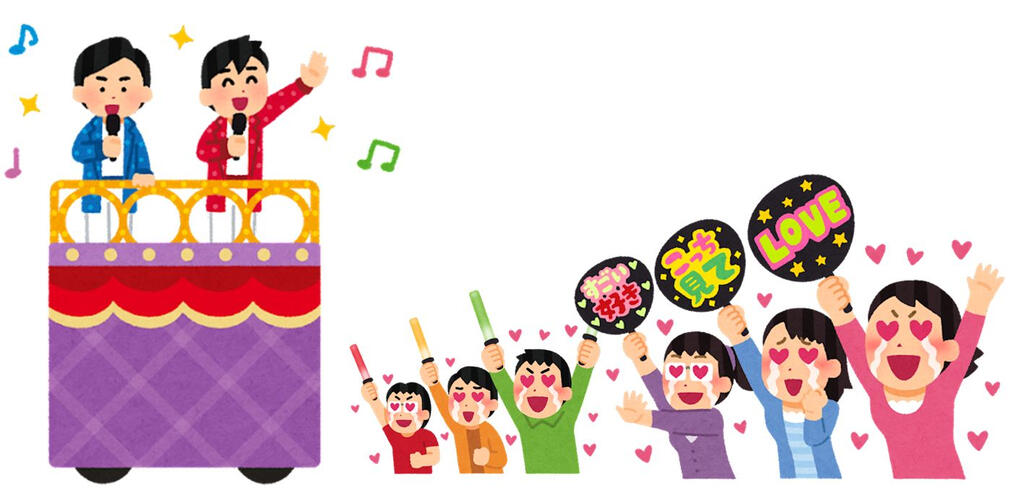
Wota
The word "wota" is an abbreviation of "otaku", and is commonly used to describe fans.

FC
An abbreviation for “Family Club”, FC is the official fan club for each idol group.

FC web
“FC web”, or “Family Club web”, is a paid subscription-based service that features the blogs of most idol talents, including the Juniors.
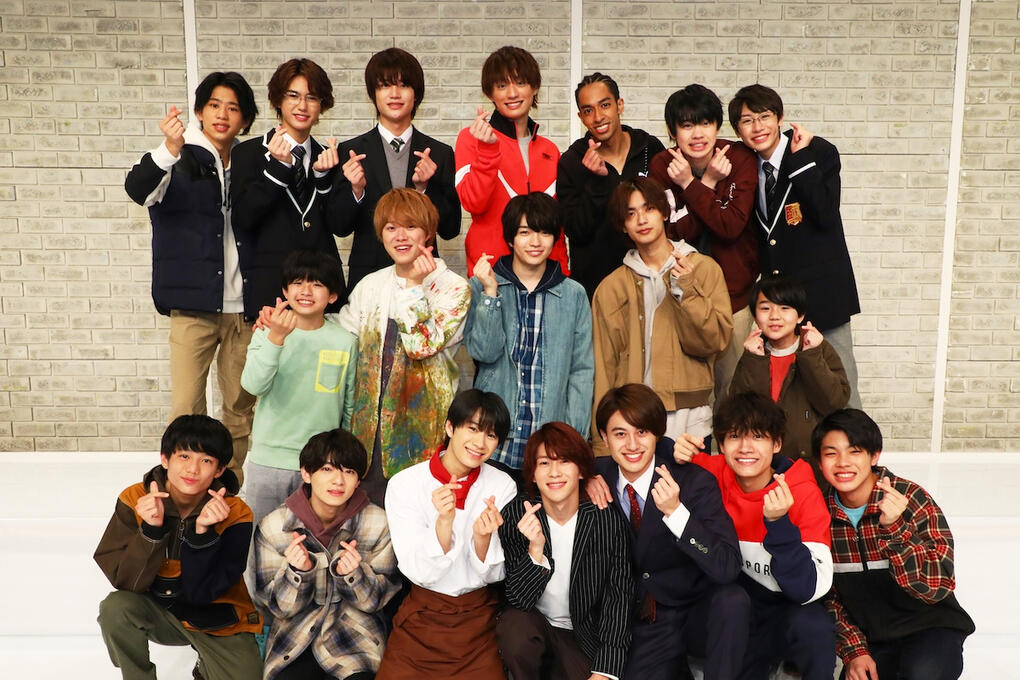
Kansai-ben
The Japanese word “ben” means dialect, so Kansai-ben refers to the dialect spoken by people from the Kansai region of Japan. Many of the agency's idols come from the Kansai region as the agency has a base there outside of Tokyo.
Kouhai
“Kouhai” refers to one’s junior at the agency. As the idol agency is a hierarchical organization, an idol’s seniority is typically determined by the date on which one enters the agency, not their age or debut date.For example, Kikuchi Fuma is considered Fujiwara Joichiro's kouhai even though he debuted many years before Joichiro.See "Senpai".Livejournal
Livejournal, or “LJ”, is a Russian-owned social networking service where users can maintain a blog or join communities. It was very popular among idol fans in the early 2000s as a way to interact and share content.Oshi
The Japanese equivalent of “bias”, oshi refers to your favorite member of an idol group.
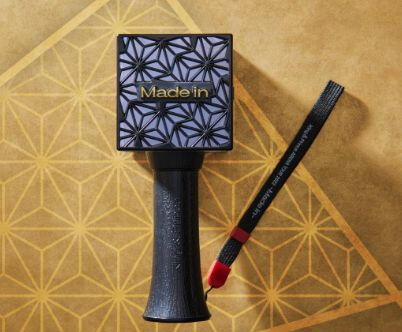
Penlight
Penlights are handheld lights used by fans in concerts. They often come in various designs and some are capable of FreFlow technology.See furifura (Freflow).
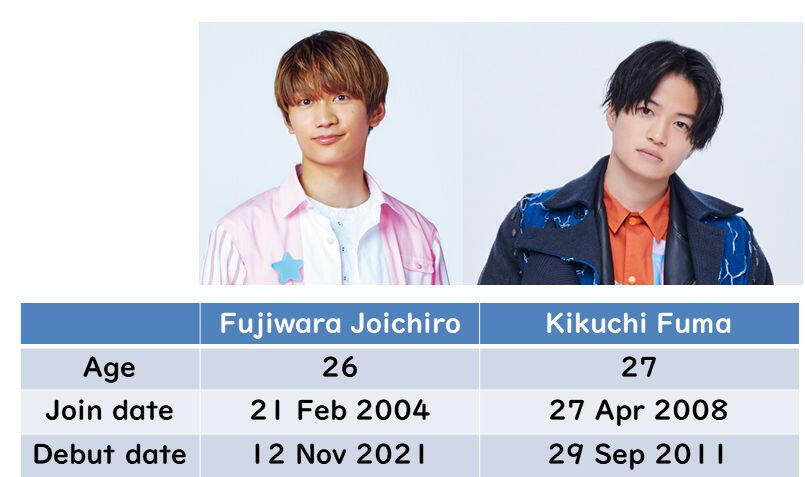
Senpai
“Senpai” refers to one’s senior at the agency. As the idol agency is a hierarchical organization, an idol’s seniority is typically determined by the date on which one enters the agency, not their age or debut date.For example, Fujiwara Joichiro is considered Kikuchi Fuma's senpai even though he debuted many years after Fuma.See “Kouhai”.
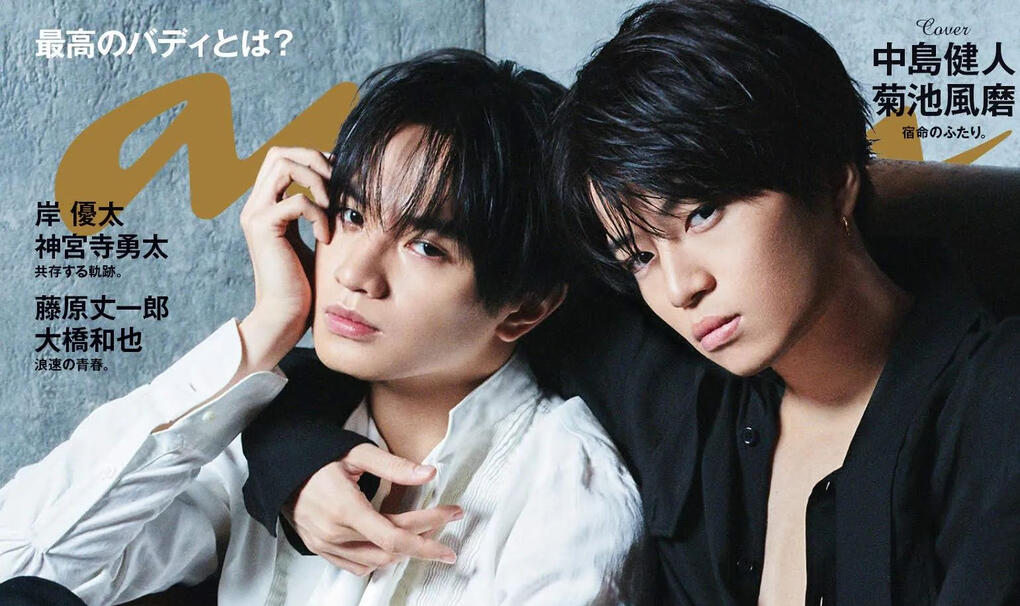
Shinme
“Shinme” is derived from the word “symmetry” and describes 2 idols who danced as mirror images of each other. This term commonly refers to a pair of Juniors who were backup dancers for debuted groups, and often have a close relationship.Shinme pairs often have a name. For example, Fumaken is used to describe the shinme pair of Kikuchi Fuma and Nakajima Kento from Sexy Zone.

Tan
Derived from the Japanese word “tantou” (担当) or “to be responsible for” , “tan” means that you are a fan of a certain idol or idol group. For example, Travis Japan fans are called “Traja-tan”.

Uchiwa
An uchiwa is a Japanese handheld fan that audience members often wave in concerts in support of their idols. Many fans often make their own uchiwa with custom messages in order to get fan service from their idols.